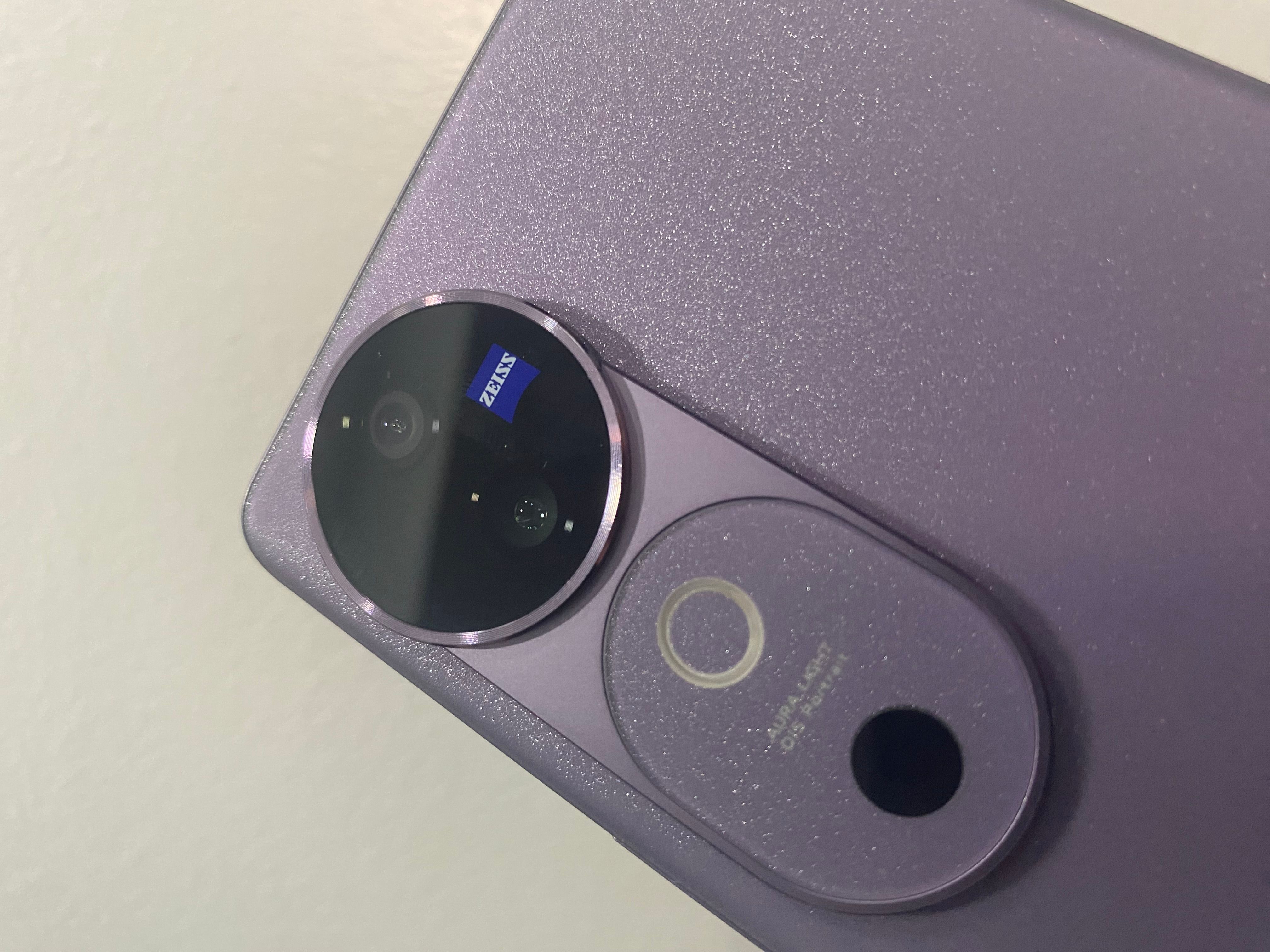
The vivo V40 has impressed us. Like, really impressed us.
Design is one thing. It's sleek and feels premium in every way. The Nebula Purple colorway is gorgeous. The Gemini Ring design, housing the camera lenses, is not just nice to look at but also functional, protecting the lenses from scratches when placed on flat surfaces. The Aura Light, a simple innovation that basically puts a ring-light in the camera module, is very bright and has a strong and creative effect when taking pictures, offering softer, more flattering lighting compared to traditional smartphone flashes.
It's also got the AI Eraser, an Android tool that lets you erase unwanted objects or people from your pictures. I'm not a big fan of that, in general, if I'm being honest. While it's a neat feature that can help you get that perfect shot in a more convenient manner, it raises questions about the authenticity of photographs in an era where image manipulation is becoming increasingly seamless. But that’s just me overthinking things. It does feel nice to remove dozens of people in the background who are taking selfies in that very spot you’re taking your own selfie.
In any case, vivo toured us, along with other media groups from across Asia, on a photowalk in Germany, specifically in Munich. The choice of location wasn't random – Germany's rich history and diverse architecture provided the perfect backdrop to test the V40's camera capabilities in various settings, such as exploring the Gothic architecture of Munich, it’s enormous churches, the busyness of the Marienplatz, and the Neues Rathaus, a massive building whose designs I was only able to climb in an Assassin’s Creed game.
Also, two hours from Munich, is Oberkochen, the location of the ZEISS headquarters. ZEISS is a heavyweight in optics technology, and you’ve probably been seeing that name for at least two decades in mobile phones. But, never, has it ever been emphasized how crucial ZEISS’ role is in photography. There, in the ZEISS office, we learned a little bit about their history: Founded in 1846 and has been producing lenses used in everything from NASA missions to Hollywood blockbusters.
The partnership between vivo and ZEISS brings over 175 years of optical expertise to the palm of your hand.
We’ll get more into that soon.
But for now, let me show you the images taken with the vivo V40, which is backed by ZEISS tech.
By the way, I've mentioned before that I'm not a photographer and I'm nowhere close to being a decent one. So don't judge my images too harshly. However, that's part of what makes the V40 impressive – it allows even amateur photographers like myself to capture images that look professional. Please note, “look professional,” meaning the composition itself, not the subject or the story within the picture. But hey, I’m just patting myself in the back.
Being not a photographer, is perhaps, the best way to point out that the vivo V40 can at least help you produce these images. The vivo V40 contains automatic scene detection and real-time optimization.
All of the images above were shot with vivo V40's Portrait mode, switching around with its 24mm, 35mm, and 50mm focal lengths.
But more interesting, are the ZEISS Styles portraits. These allow you to control the bokeh effects in the background. It adds a bit of style to the image, per se. I don't think I did very well to capture images with bokeh effects.
Ironically, when we spoke with ZEISS about bokeh effects, they were quite vocal about their dislike for bokeh. Bokeh are byproducts in photography. It's basically like astigmatism. However, bokeh has recently gained appreciation. ZEISS, essentially, shrugged, and adapted, developing to optimize creativity with bokeh.
Now, this isn't a review of the vivo V40. We've done that last week. However, I have developed a deeper appreciation for how vivo is handling smartphone photography with the V40. It is among the top smartphones I have tried in the past couple of years. So go ahead, check out the V40 the next time you visit a vivo store.